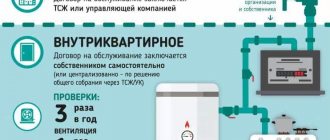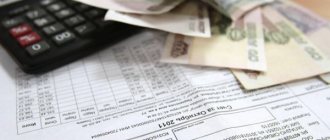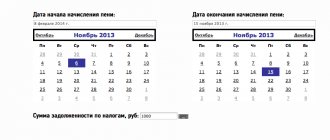What is housing and communal services, and what does a person pay for every month?
In general, housing and communal services are divided into two groups:
- Housing.
This is the maintenance of joint property in proper form: in particular, landings, local areas, parking, attics and basements, elevators, and so on. Specific services and their payment are discussed at HOA meetings. This typically includes disinfecting, emptying garbage chutes, cleaning and elevator maintenance. - Utilities.
These services include the supply of gas, hot and cold water to apartments, electricity, heating and sanitation.
However, housing and communal services do not include major repairs. Fees for it are paid separately. But here it is necessary to understand the difference: if the housing is owned by a person, he will have to pay for major repairs. If we are talking about a municipal apartment, then major repairs are covered by the municipality. Accordingly, if a person does not pay, then penalties will be charged separately.
What are the consequences of rent debt for the owner?
Let's figure out what the consequences will be for delaying housing and communal services:
Warnings
After 2 months of delay, you will receive a notification that payment must be made within 20 days. If payment continues to be absent, the service will be limited and then disabled. You can find out about the debt in your personal account on the organization’s portal. For example, on the Mosvodokanal website. Notifications also come by mail, in receipts for payment. Sometimes residents receive calls and are warned about delays.
Penalty
As early as 31 days of delay, penalties for lack of payment begin. If the delay is up to 90 days, then you will be charged 1/300 of the key rate daily. Already from 91 days the penalty increases to 1/130 of the amount owed. At the moment, the regulator's key rate is 6.75% per annum. The Board of Directors of the Central Bank meets about the rate level once every 3 months; it can be tracked on the website of the Central Bank of the Russian Federation. The rate can either increase or decrease, or remain unchanged for a long time.
How to calculate penalties? Let's give an example.
You pay 10 thousand rubles monthly for utilities. It's September 15th and your payment is due. But you haven't received your salary yet due to delays. You will probably be able to pay on October 7th. And this is good - no penalties will be charged until October 15.
If payment is not received by October 15, penalties will begin to count. Every day you will be forced to “pay extra” 2 rubles and 25 kopecks for late payment. The formula is:
6,75 / 300 = 0,225
10 000 * 0,225% = 2,25.
Accordingly, in November, from the 15th, the date for the next payment for housing and communal services will come. If you are late again, you will have to pay an additional 4.5 rubles per day. And after 3 months of delay, penalties will increase by more than 2 times:
6,75 / 130 = 0,0519
(10 000 * 3) * 0,0519% = 15,57.
15.57 rubles daily is penalties for overdue 3 months. But given that the amount increases monthly, the penalties will increase in accordance with this progression.
Separately, penalties are paid for late payments for major repairs. The calculation principle will be as follows:
- the penalty is charged from the 31st day of delay;
- the rate is 1/300 of the key rate (no changes).
Turning off water and light
Until an official warning requiring payment to be made within 20 days, your electricity and water will not be turned off. But then it’s a lottery. A management company for rent debts can:
- limit the use of resources. For example, your hot water will be turned off every day in the morning and evening;
- If payment continues to be absent, this will result in a complete shutdown of utilities.
If it is impossible to partially limit the provision of a utility service, then the management company has the right to immediately turn it off completely. For example, in the case of electricity, the master simply cuts off the electricity supply using mechanical means.
But! We have regulations that prohibit turning off cold water and heating. When “punitive” measures are applied, other residents should not suffer. In particular, it is unacceptable to turn off the gas supply if the entire entrance is damaged.
Adviсe
The following recommendations will help you avoid the formation of debt and the creation of unforeseen situations regarding timely payment for consumed gas:
- Convenient options are provided by the software of modern gadgets - if you set up reminders on your mobile phone or laptop, the payer will be notified in a timely manner about the need to pay for gas.
- You can use the option of automatic payments - this service is offered by banks. As a result, the funds will be transferred to the Gorgaz account on the date specified by the owner.
- If you pay several months in advance, you won't have to worry about possible debt. The amount can be adjusted in the future.
- The installed meter will allow you to save on payments while minimizing gas consumption.
- Misunderstandings can be avoided if information about current meter readings is sent to Gorgaz in a timely manner.
If there are disagreements regarding payment for consumed resources, misunderstandings can be eliminated by visiting the supplier organization and recalculating the payment. Payments may not reach the supplier as a result of:
- operator errors when depositing funds through the bank,
- failures in the functioning of computer systems,
- inaccuracies in data recording by Gorgaz employees and for other reasons.
Regular reconciliations will allow you to agree on data regarding payment for resources.
Timely payments for gas will allow the consumer to avoid unpleasant situations and fulfill their obligations to the energy supplier.
Utility debts remain unpaid: what next?
Let's imagine that you have nothing to pay with. Will the management company limit itself to just turning off the lights? Naturally not. She will count late fees for some time, and then go to court.
She has two options: apply to the magistrate for an order or write an application to the district court. If your debt amounts to up to 500 thousand rubles, then the case will be limited to a court order or the so-called “order order”.
This means the following:
- you will not be summoned to court;
- the order is issued within 5 days;
- you will receive a copy of the order by mail and will have 10 days to object. In such a case, the judge will be obliged to cancel the order;
- if no objection is received, the order is transferred to the FSSP or directly to the bank to begin forced collection.
Next, the debtor is dealt with by bailiffs. They have the right to apply various measures of influence. They are not subject to the law prohibiting the processing of personal information. Their powers are described in No. 229-FZ “On Enforcement Proceedings”.
In particular, in case of debt for utility payments, the bailiff has the right to impose the following restrictions:
- seizure of bank accounts;
- monthly penalties in the amount of 50% of salary;
- write-off of up to 50% of the amounts received on the pension card;
- placing the debtor on the All-Russian wanted list;
- seizure of property for the purpose of further sale;
- blocking bank cards;
- restrictions on traveling abroad.
The number of measures and their types are chosen by the bailiff who is in charge of the case. First of all, the bailiff checks the status of the debtor's accounts. If a person has a stable income, the bailiff is limited to writing off money on a monthly basis. If there is no money, the FSSP examines the person’s financial condition, and then proceeds to search and arrest, inventory and sale of property.
It is worth separately describing the following consequences:
- You will become persona non grata for the banks. The fact is that such excesses seriously damage a person’s credit history and overall reputation. Anyone can check a person for open enforcement proceedings; the register is published publicly on the FSSP website. In the future, problems will arise with obtaining loans and other opportunities;
- Eviction from the apartment is possible. In general this is possible, but only under certain circumstances.
You should not think that bailiffs do not have the right to evict you from your apartment, since it is your only home. Still, people are evicted for housing and communal services debts.
In particular, you face eviction if:
- your apartment is registered as housing under a social rental agreement, and the delay lasts more than six months. The tenant will be evicted, however, with the provision of other housing. Needless to say that it will be several times smaller than the previous one? The norms will be calculated as in a dormitory: 6 sq. m. per person;
- your apartment is registered in your name, but the amount of utility debts is too high. You have no money, no property and no other assets except the apartment. In this case, the bailiffs will raise the issue of seizing the property. There were cases when bailiffs seized a single apartment, although by law they could not sell it or otherwise realize it.
Debts on utility services are subject to penalties, shutdown of electricity, gas and water supply, a lawsuit and seizure of property.
It is advisable to pay utility bills on time. The maximum period of permissible delay is 1 month. Then the management company begins to apply various measures: accruing penalties, disconnecting communications. If the problem is not solved, she goes to court and forcibly collects the debt through bailiffs.
Do you go to jail for not paying utility bills?
In practice, there has never been a single case where a person was sent to prison for non-payment of utility bills. All punishments in this case are expressed in the accrual of penalties and in the activities of bailiffs.
Indeed, we have a criminal article for malicious evasion of repayment of accounts payable - Art. 177 of the Criminal Code of the Russian Federation. But it applies only if we are talking about a large amount - from 2.25 million rubles.
In real life, the management company itself will not allow such a debt - communications are turned off after several months of delay, and such large sums simply do not have time to accrue.
By the address
If you don’t know or don’t have a personal account number, you can also find out your gas debt by looking at the residential address.
There are several options to solve the problem:
- visit to the management company serving the desired address,
- contact any bank branch,
- visit to a single settlement center.
In any of these institutions, an inspection will be carried out at the address (for example, St. Petersburg, N-skaya St., building No., Apt. No.). Based on the results, you can immediately make a payment and receive a receipt.
What to do if you have debts for utility services?
Recommendations vary depending on your specific circumstances. You can’t give universal advice for everyone, you need to build on the situation. Below we will consider popular circumstances and give legal advice.
Try to pay in installments
You have been in arrears for a long time, now you have the opportunity to pay, but in parts. For example, you started working and receiving a regular salary.
You need to contact the management company and describe the situation. You can agree on restructuring without going to court. At the same time, your communications will be reconnected, and you will be able to pay off your debt and repay current payments in a comfortable manner.
Judicial debt restructuring
The management company does not agree to provide restructuring and demands all payment at once.
In this case, it is necessary to apply to the court to declare bankruptcy of an individual. We also attach to the application a request for debt restructuring. If you have a stable income and enough to pay off the debt in installments over 3 years (36 months), then this approach will work. The court orders restructuring, but bankruptcy is not recognized.
The debt is inherited
You inherited an apartment with debts. Here you need to start from the amount of utility debts and the status of housing. It is important to answer the question - is it the only one for you.
If yes, then feel free to apply to the court for recognition of personal insolvency. This will allow you to write off utility debts (if the debt is over 300 thousand rubles) and keep the housing for yourself.
If the apartment is not your only home, things are more complicated. In bankruptcy it will be taken away, so it is necessary to look for alternative options.
The management company has already filed a lawsuit against you
And enforcement proceedings have already begun. There’s “nothing that can be done” here; the bailiffs took over the case. But still, there is a way out.
You can write a statement and apply to the district court to be granted a deferment or installment plan for the court decision. This option will come in handy for those people whose circumstances are unfavorable. For example, they were fired from work, dependents appeared, a person pays off a lot of debts, there is a sick child, and so on. You will be able to NOT pay for 12 months.
Remember that even after proceedings have begun with the bailiff service, you have the right to file for bankruptcy.
Almost 40% of debtors do not pay for housing and communal services even after a court decision
The level of payment discipline for payment for utility sector services is decreasing. So, the number of defaulters, that is, individuals. persons who have not repaid the debt for housing and communal services by court decision, information about which was transferred to the NBCH, reached 38.3 thousand people. Dynamics for 2021 - growth by 8.7%. As of November 1, 2021, data on defaulters from 152 housing and communal services enterprises from 50 regions of the Russian Federation is transferred on an ongoing basis to the National Bureau of Credit History.
The NBKI noticed that at the same time the number of legal entities that do not pay for housing and communal services is growing, information about their debts is also transferred to the bureau. Over the course of the year, there are already about 3.6 thousand units. And the increase in the number since the beginning of the year was 2.9%, since as of January 1, 2021, there were 3.5 thousand such debtors.
In accordance with Federal Law No. 218 “On Credit Histories”, since 2015, information about the fact of non-fulfillment of court decisions on payment of utility bills within 10 days has been recorded in the credit histories of citizens and organizations. In this case, the transfer of data to the credit history bureau is carried out by the enterprises themselves that provide housing and communal services.
A credit history is, in fact, a document about the state of a citizen’s financial reputation and payment discipline for all his debts. Therefore, entering into it a record of an unfulfilled court decision on payment for housing and communal services means a significant complication in obtaining subsequent loans or a significant deterioration in their conditions.
And this means an increase in the rate, a reduction in the term and amount of the loan. At the same time, information about debts for housing and communal services that have not been repaid by a court decision is available to all creditors - banks, microfinance organizations, pawnshops, leasing companies and even investment platform operators.
Currently, housing and communal services enterprises interested in reducing accounts receivable have established the transfer to NBKI not only of information on large debts for housing and communal services, but also on less significant amounts of debt, noted NBKI General Director Alexander Vikulin.
By personal account
Gas debt can be found on your personal account. This is a special identification number assigned not only to a specific property, but also to the payer.
For example, residents of communal apartments or divorced spouses living in the same area each pay for themselves (with or without metering devices according to current charging standards).
The easiest way to find out your personal account number is by looking at the receipt of the Unified Payment Document. The account number is also contained in the gas supply agreement, which must be concluded between Gazprom Mezhregiongaz and the owner of the property.
Information about debts on a personal account can be obtained quickly and easily, both in all-Russian services and on the official websites of regional natural gas supply companies. Let's look at some ways to check debt on a personal account online.







